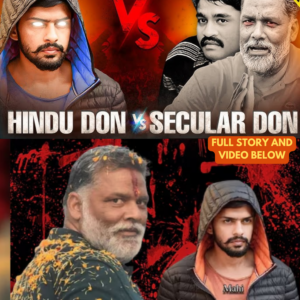In recent developments, Lawrence Bishnoi, the notorious gangster, may soon be released from jail. This news comes amidst rising tensions following the assassination of former politician Baba Siddiqui, a crime for which Bishnoi’s gang has taken responsibility. This incident has prompted the Bishnoi community to reconsider their stance on Salman Khan, who has been linked to various controversies involving them.
Lawrence Bishnoi has been cleared of extortion charges by the Punjab Special Investigation Team. Their findings indicated that no evidence was found to substantiate the allegations against him. Nonetheless, investigations related to threats made by Bishnoi continue, leaving the situation fluid and uncertain. The gangster’s potential release is a matter of public interest, particularly in the context of his past threats against Khan.
The aftermath of Baba Siddiqui’s murder has intensified security concerns for Salman Khan. Reports suggest that Khan’s security has been bolstered significantly, reflecting the community’s concerns for his safety in light of recent events. Bishnoi’s public statements about wanting to harm Khan have added to this atmosphere of fear and uncertainty.
The 1998 blackbuck poaching case involving Salman Khan is also back in the spotlight. This long-standing controversy has resurfaced following the recent violence, and the Bishnoi community’s grievances regarding this incident remain fresh. They have made it clear that any reconciliation with Khan would hinge on his acknowledgment of his past mistakes.
Devendra Budhia has reiterated that the Bishnoi community is known for its principles of compassion and forgiveness. He emphasized that true remorse is necessary for forgiveness to be granted. The community is willing to extend a chance for reconciliation, but it hinges on Khan’s willingness to confront his past actions publicly.
The significance of blackbucks in the Bishnoi culture cannot be overstated. The community holds these animals in high regard, viewing them as sacred. Killing a blackbuck is not just a legal violation; it is seen as a profound disrespect to their beliefs and values. This cultural context adds weight to the Bishnoi community’s demands for accountability.
As discussions unfold regarding the future of Lawrence Bishnoi and Salman Khan, the potential implications for both individuals are substantial. Bishnoi’s release could lead to renewed tensions, particularly if he remains unrepentant about his past threats. Conversely, Salman Khan’s path to reconciliation may be complicated by the historical weight of his actions against the Bishnoi community.
In summary, the intersection of crime, culture, and forgiveness is at the forefront of this ongoing narrative. The outcome of these developments will likely have lasting repercussions for both Lawrence Bishnoi and Salman Khan, shaping their legacies in the eyes of the public and the communities involved.
As the situation evolves, it remains to be seen whether genuine reconciliation is possible. The stakes are high, and both individuals will have to navigate a complex landscape of legal, cultural, and personal challenges moving forward.
News
Amitabh Bachchan behaved badly with his daughter-in-law Aishwarya Rai | Amitabh IGNORE Aishwarya Rai
In recent weeks, a wave of speculation has emerged suggesting that all may not be well between former Miss World Aishwarya Rai and the iconic Bachchan family. This speculation has captured the attention of fans and the media, as rumors…
Amitabh gave a message to daughter-in-law Aishwarya Rai, said “No matter how your house is, it is yours”
Amitabh Bachchan, the iconic figure of Indian cinema, has a longstanding tradition of engaging with his audience through social media. He often shares reflections on his life, career, and personal philosophies. Recently, a particular post of his has stirred significant…
Salman Khan vs Lawrence Bishnoi | Why it is Happening? |
Salman Khan vs Lawrence Bishnoi | Why it is Happening? | The tension between Bollywood superstar Salman Khan and gangster Lawrence Bishnoi has become a hot topic in recent news. This clash is not just a simple feud; it embodies…
Lawrence Bishnoi Vs Pappu Yadav | Bishnoi Targets Anti-India Mafia?
In the ever-evolving landscape of India’s criminal underworld, a new chapter is unfolding, marked by the dramatic confrontation between notorious gangster Lawrence Bishnoi and the infamous Bihar don, Pappu Yadav. This rivalry has escalated recently, with Bishnoi’s gang issuing a…
LAWRENCE BISHNOI VS SALMAN KHAN, PAKISTANI PUBLIC REACTION AFTER NADEEM KHAN VIRAL VIDEO, REAL TV
The recent controversy involving Bollywood superstar Salman Khan and Lawrence Bishnoi has sparked intense discussions across communities, especially concerning allegations of animal cruelty. The speaker, representing a particular community, emphasizes that if there is evidence that Khan has harmed a…
LAWRENCE BISHNOI’S DIWALI GIFT TO PAPU YADAV LIVE, AFTER NADEEM KHAN & SALMAN KHAN, LATEST NEWS
In a recent live discussion, significant attention was drawn to the ongoing tensions surrounding Pappu Yadav and Lawrence Bishnoi, especially in light of recent developments involving prominent figures like Nadeem Khan and Salman Khan. The speaker began by addressing the…
End of content
No more pages to load











